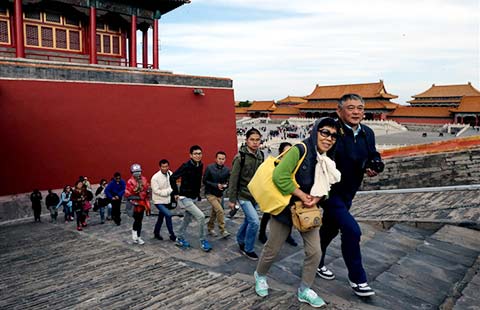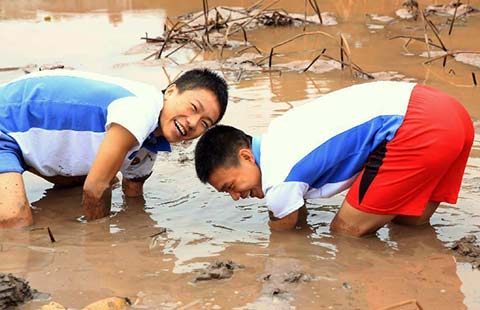Hard pill to swallow?
Updated: 2015-10-12 07:31
By Raymond Zhou(China Daily)
|
||||||||
Attitudes towards TCM, however, run the full spectrum from heartfelt embrace to total rejection. On one end are those who extol it as the magic potion that has eluded Western medicine. And on the other end are those who are convinced it is pure superstition. I don't agree with either side.
There is obviously a cultural aspect to TCM. It is intertwined with traditional Chinese philosophy and metaphysics. Like religion, very often you have to believe it before you can experience its efficacy. But medicine is a science and as such it has to have things that are absolute-unlike culture, which is relative. While a color or an architectural style can incite different feelings in different people, a drug usually works the same within a certain range of variations such as patient resistance, weight and age.
Culture thrives on fuzziness. Words with multiple meanings are often employed for special effects. A story is considered good if it leaves room for speculation, say, in the movie The Life of Pi. But from the perspective of science, such ambiguity can be deadly. It calls for methods and products that are measurable in every aspect.
I have the weird notion that ancient Chinese wanted their remedies to be accurate, but given the circumstances they had to opt for a fuzzier approach. Anyone who has been to a TCM drugstore will understand this dilemma: A sales assistant uses a small Chinese scale to weigh each ingredient, but sometimes he would simply grab a pile and spread it evenly over each packet. The way to determine the quantity is reminiscent of a chef. The goal is to be exact, but approximation is tolerated when quantifying becomes too troublesome.
Which implies that, had ancient Chinese possessed the tools, they would have resorted to trial-and-error not that different from modern science. We must remember that in antiquity there were a lot of things not yet available. People back then had to make do with what they had got. But for people who live with the benefit of modern science, there is no reason why we should not use it. And that was exactly what Tu and her peers did. They took a seed from ancient China and ran it through the vetting process of modern medicine.
Of course, thousands of other TCM seeds did not come out of the grinding mill with any fruit. But that is the nature of testing, and that is also where its value lies. Big pharmaceutical companies engage in prolonged and expensive tests before coming up with a drug that can be approved for the public.
TCM often relies on a hunch and is tested more sporadically. But sometimes an epiphany on a smart mind can open up a new vista, such as Tu coming up with low-temperature extraction for Artemisinin. For that, she has acknowledged the TCM influence and considered her win "an honor for China's science cause and traditional Chinese medicine in their course of reaching out to the world".
To develop modern medical science, we need inspiration from every possible source. And there is no reason we should categorically deny TCM as one of these sources. However, while we can embrace it as part of our heritage, we must subject individual therapy to the rigorous reviews demanded by today's consumers.
Contact the writer at raymondzhou@chinadaily.com.cn

 Chinese spending spree drives Japanese economy
Chinese spending spree drives Japanese economy
 Chasing time: Man amasses large watch collection
Chasing time: Man amasses large watch collection
 Palace Museum's western part opens for first time in 90 years
Palace Museum's western part opens for first time in 90 years
 Vivid sand sculptures attract visitors in Hunan
Vivid sand sculptures attract visitors in Hunan
 One killed in Northern Arizona University shooting
One killed in Northern Arizona University shooting
 Students join outdoor courses in countryside
Students join outdoor courses in countryside
 Stewardesses trained to show sweet smile
Stewardesses trained to show sweet smile
 Tourist attractions receive30 million visitors during Golden Week
Tourist attractions receive30 million visitors during Golden Week
Most Viewed
Editor's Picks

|

|

|

|

|

|
Today's Top News
Tu first Chinese to win Nobel Prize in Medicine
Huntsman says Sino-US relationship needs common goals
Xi pledges $2 billion to help developing countries
Young people from US look forward to Xi's state visit: Survey
US to accept more refugees than planned
Li calls on State-owned firms to tap more global markets
Apple's iOS App Store suffers first major attack
Japan enacts new security laws to overturn postwar pacifism
US Weekly

|

|








